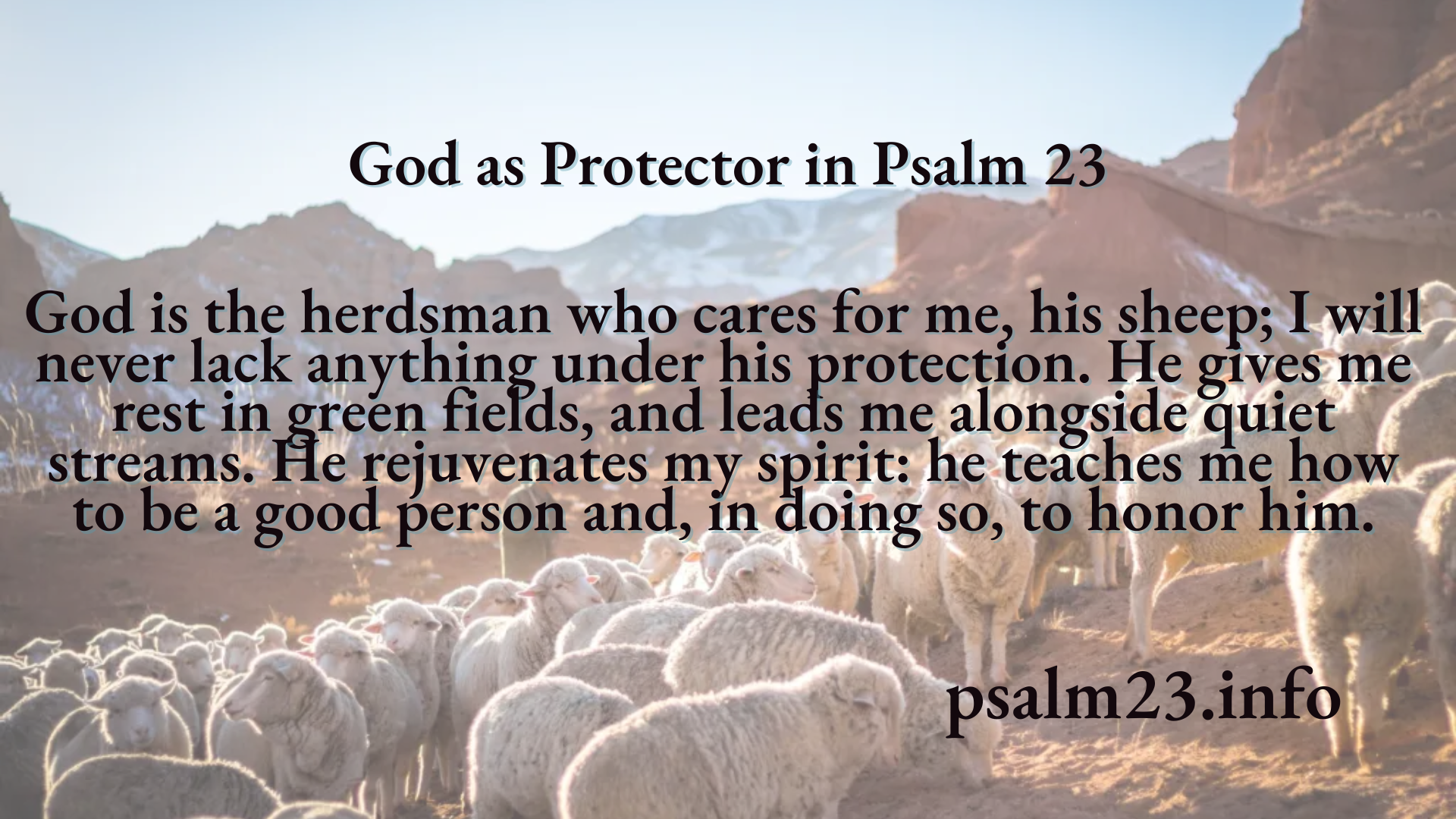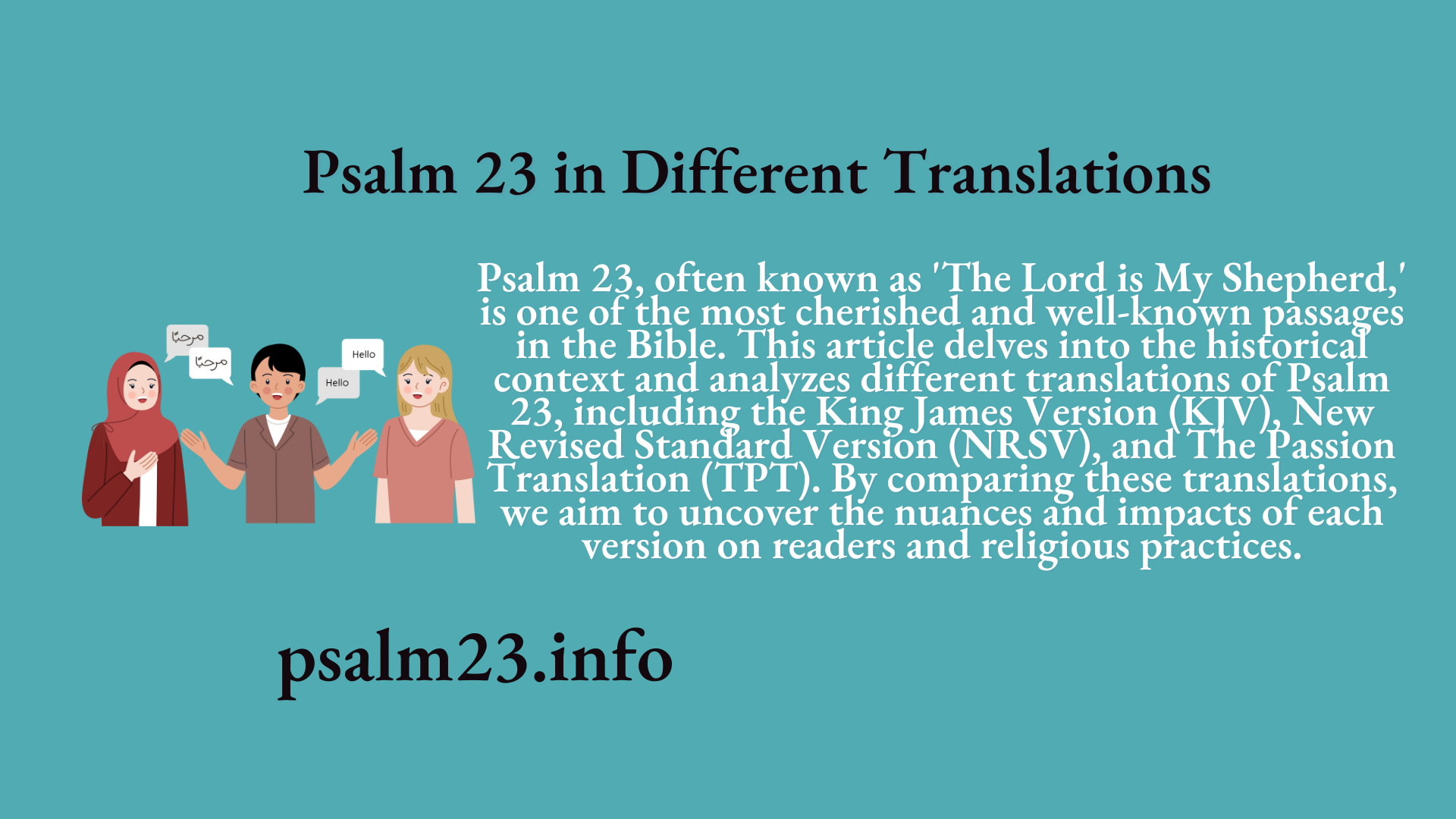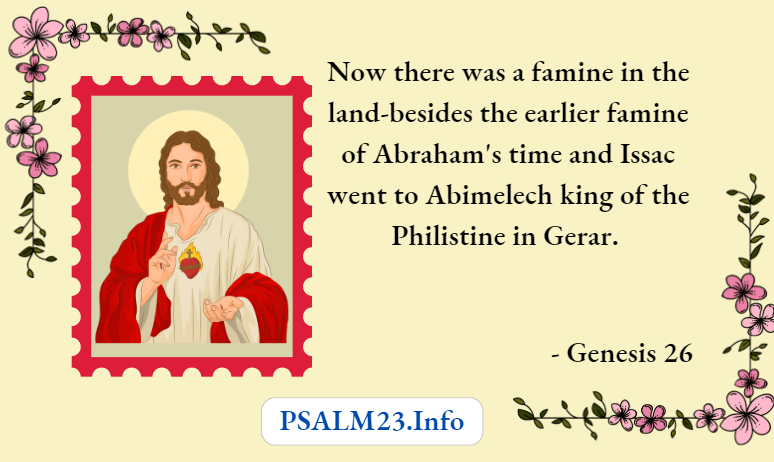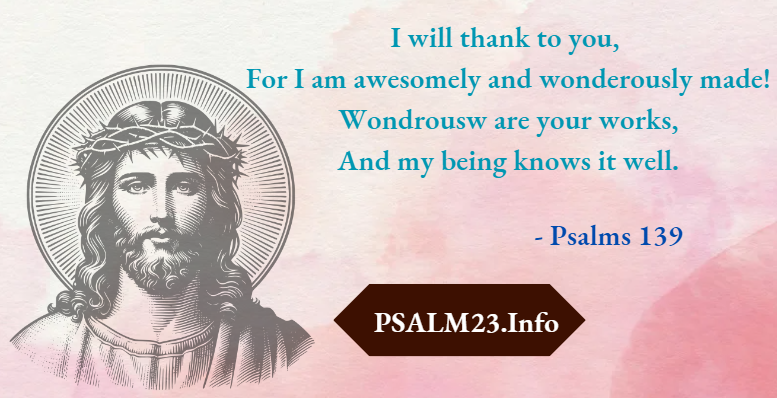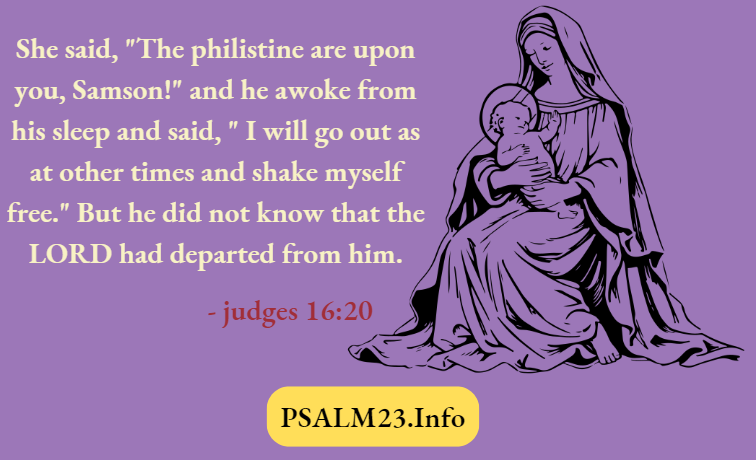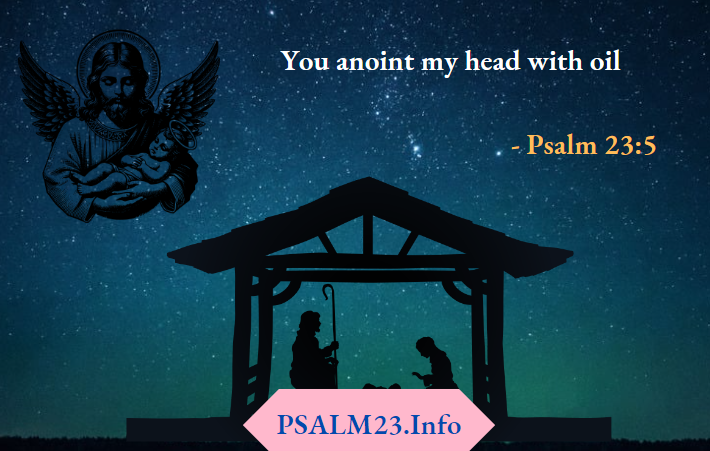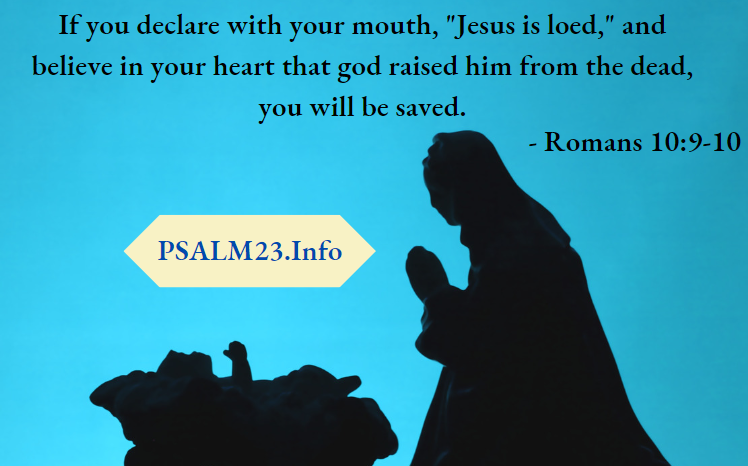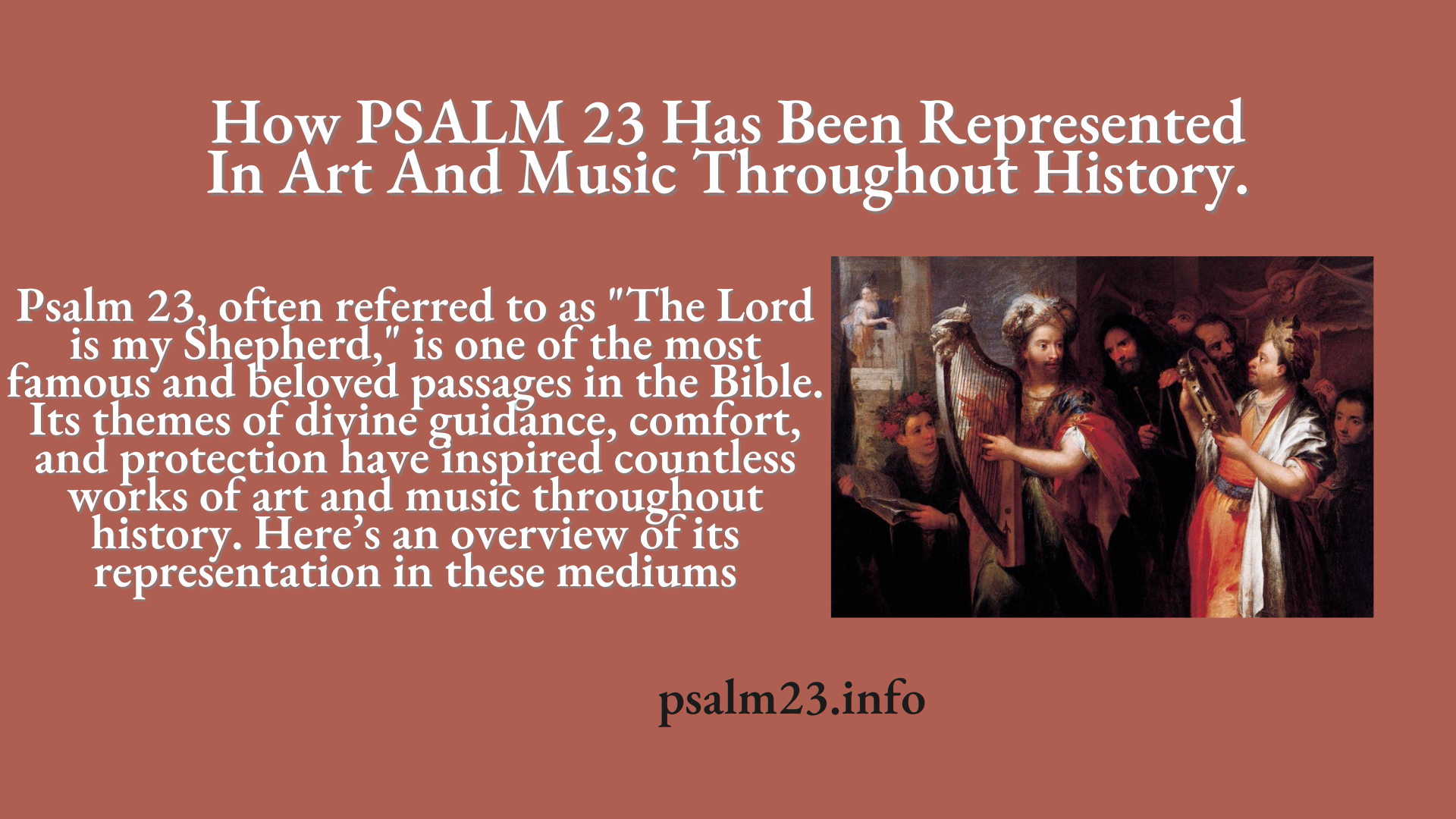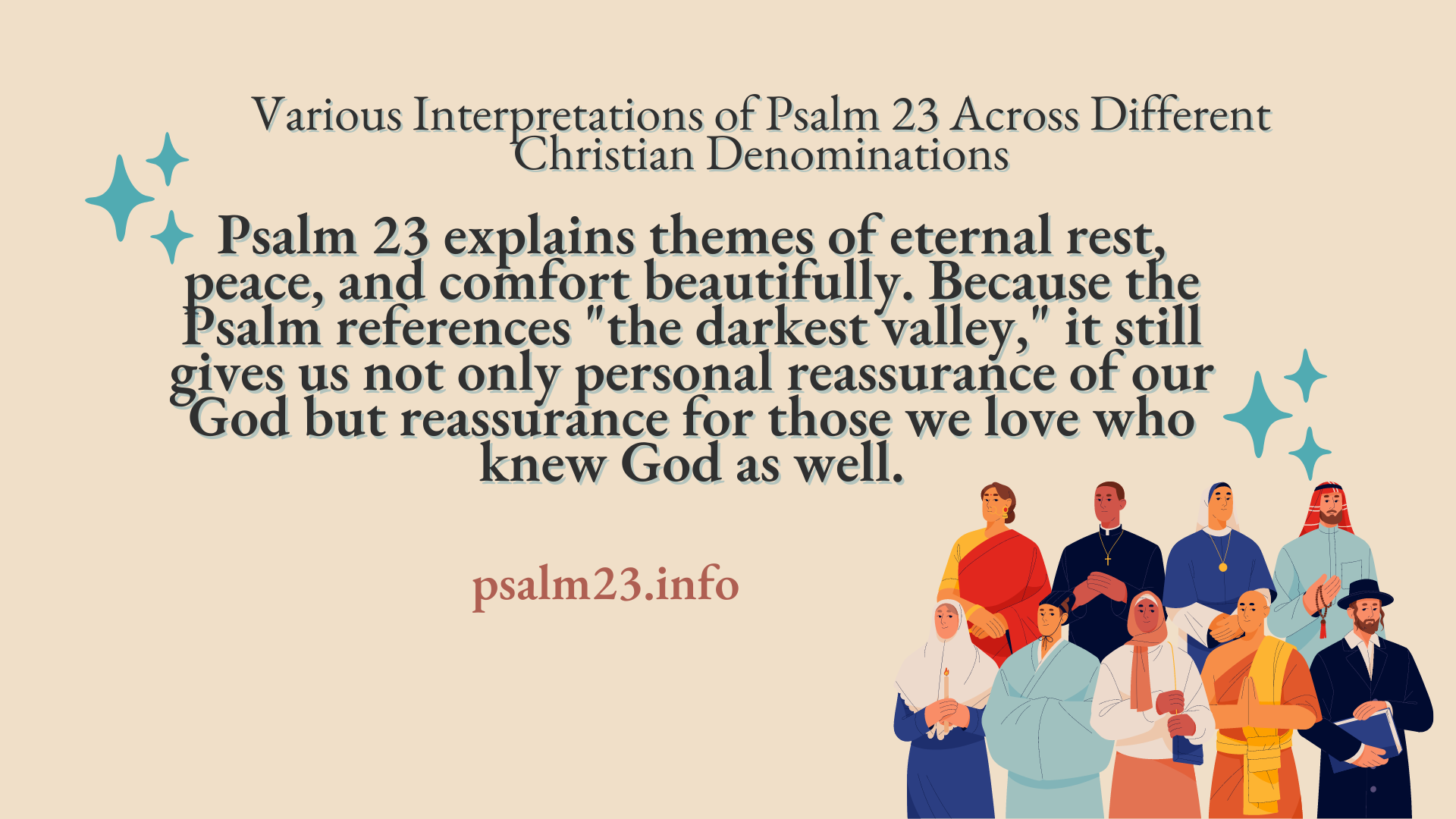Protect Me
Even though I walk through the valley of the shadow of death, I will fear no evil, for you are with me;
Please keep in mind that David has the picture of the shepherd and the sheep in mind as he is writing this psalm. He sees God as his shepherd and himself as the sheep following the shepherd.
In those days, the shepherd did not walk behind the sheep as we see today, he walked in front. The sheep took their direction from the shepherd.
Now the sheep acknowledges that in order for it to succeed it has to trust and depend on the shepherd completely. The sheep does not always travel on a smooth road; there are times that it has to go through the valleys and the hills.
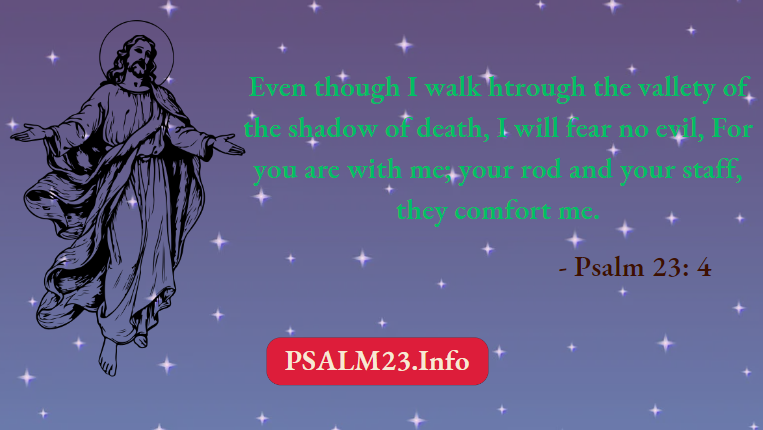
At other times it has to go through the valley of the shadow of death. However, it never moves its eyes from the shepherd. The sheep does not concern itself with what is going on around it, it keeps its focus on the shepherd.
I will fear no evil, for YOU are with me. The only reason the sheep has no fear in its circumstance is the presence of its shepherd.
I have told the story about the rubbish truck and my daughter before, but I am going to mention it here as well because I think that it will help us understand the point that David is making. We stay in a complex.
A while back when my daughter was just learning to run and was very excited about it, she ran everywhere. She did not need any reason to run, she just ran. So one day I was playing with her outside and she decided to run.
Just as she turned around the corner she saw the rubbish truck driving into the complex. She turned right there and fortunately, because I was following her, when she turned I was able to pick her up.
I did not just pick her up, but we went towards the truck. This time around she was no longer afraid of the truck. What had changed? The truck was still the same and she was still the same.
The only thing that had changed was that at first, she approached the truck on her own, and the second time she approached it in my arms.
In other words, when she approached it the first time she had only herself and her strength to depend on, but the second time, she had my strength to depend on.
The further we are from God the more vulnerable we become, but the closer we get to Him, the bolder we become. So do not deal primarily with your fears, deal with the distance between you and your God.
One of the hymns that I enjoy listening to says,
‘Turn your eyes upon Jesus,
Look full in His wonderful face
And the things of the world
Will grow strangely dim
In the light of His glory and grace’
When we fix our eyes on Him, the things that had a hold on us become nothing. Our fears will dissolve when we turn our eyes towards him. Do not spend your time trying to analyze the valley, look for Him.
Do not even spend time-fighting the valley, you will only frustrate yourself. We need to learn that even though the valley of the shadow of death is not necessarily comfortable, the shepherd knows why we have to go through it.
So as we go through it, we put our trust in Him. As we go through the valley we depend on His presence. I have seen many people running away from God in tough times.
The valley of the shadow of death could present itself in many different ways. It could be a job loss, it could be losing someone close, it could mean losing your house or your car, and it can be any painful situation.
The only thing that you need to learn to do as you go through your valley is to get closer to Him. A few years ago I was doing a funeral in Venda. I said to the family that they were going to make it through their situation.
They were burying their son, who was also a breadwinner. The question was not whether they were going to make it through or not, the question was how they were going to make it through.
Whether they were going to make it through victorious or defeated, it was their choice. I have seen this in many funerals that I have been to. I was doing another funeral about four years ago in Kempton Park.
The man who had died was married, had children, and had a house in Kempton Park. The tension started when the family wanted him to be buried in the North West province and the wife refused.
On the day of the funeral, one family sat on one side and the other one sat on the other. They have gone through the funeral and all the pain and inconvenience that it represents, but they have gone through it defeated.
They have gone through it defeated because the situation has turned them into enemies.
David says that he will have no fear. We have been made to believe that fear is the natural reaction, but according to David, fear is the choice that we make in a situation.
It is therefore possible to face any situation without fear. Fear means that we are depending on ourselves and our abilities.
We have been called to live our lives by faith. Faith is when you place your trust in God and His abilities.
Faith is when you say, ‘I cannot make it out of this, but my God can take me out.’ Fear says I am weak, faith says my God is strong. Fear says I know nothing, faith says my God knows it all.
Fear says I have sinned again, faith says my God forgives my sins. In essence, fear focuses on you and faith focuses on God.
The enemy depends on your fear and God operates on the basis of your faith. If you are not afraid, the enemy has got nothing to hold on to.
Have you noticed that when people go to rob or to steal, they always carry weapons? Their primary reason for carrying the weapons is not to kill, they carry them so that they may instill fear.
They use your fear against you. On the other hand, even though God can do anything, He will not do in your life what your level of faith is not able to carry.
Abraham and Sarah could have had Isaac earlier. However, God would not release Isaac until Abraham had the faith that was necessary.
Let us close this by looking at how we pray this part:
Pray for God’s protection over everything that God has entrusted you with. For example, pray for protection over your marriage, your family, your work, your possessions, your finances and so on and so forth.
Has it never bothered you that people who have been married for years can end in divorce? This happens because after some years of marriage, we think that we can do it on our own.
This happens because after some years of marriage, we think that we can do it on our own.
1. Pray for protection over your family: Ask God to protect your marriage from destroying it with unnecessary tensions, unnecessary arguments, false accusations, and so on and so forth.
Also pray for protection over your spouse, cover him so that they may not fall into a trap of extramarital affairs. Pray for protection over your children.
Ask God to watch over them, because the enemy is constantly looking for ways to discourage you. If necessary, he will use your children to get to you.
Pray that God guides you so that you do not destroy them with your words and curse their lives. I am so encouraged that Job prayed for his children every time they had a party.
2. Pray for protection over your possessions work and finances: Pray that your possessions, work, and finances do not become a curse in your life.
It is so possible that something that was meant to be a blessing could become a curse. A new car for example could create a huge rift between a man and the wife.
Sometimes earning more money can cause more problems at home. In other cases getting employed or getting a new business opportunity could bring all sorts of issues in the house. So pray for what God has entrusted to you.
Also, pray that the enemy will not take from you what God has rightly placed in your care.
3. Pray for protection over your life and your health as well. I do not believe that you should always be worried that something will happen to you.
But I also do not think that it is wise for you to take anything for granted. The enemy is always looking for a gap to use.
4. Pray for your thoughts and desires: I do this all the time. Our flesh desires things that are different from the spirit.
It is very important to keep your thoughts and desires under God’s watchful eye. Pray that they do not lead you astray.
